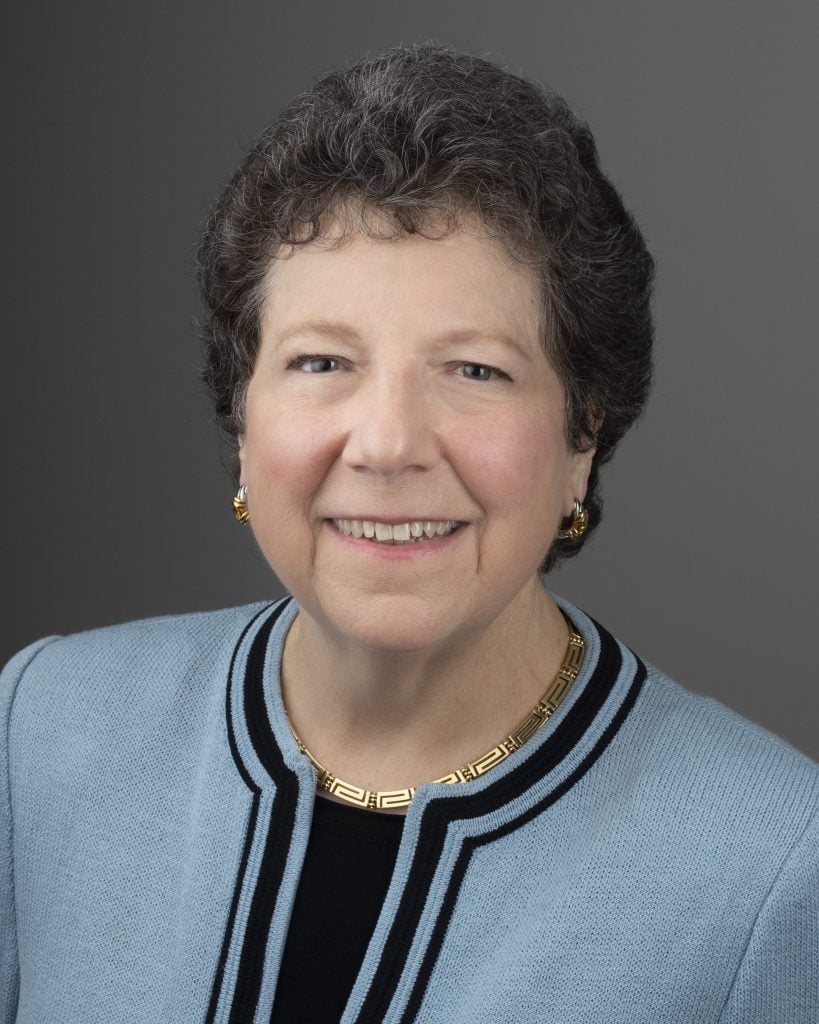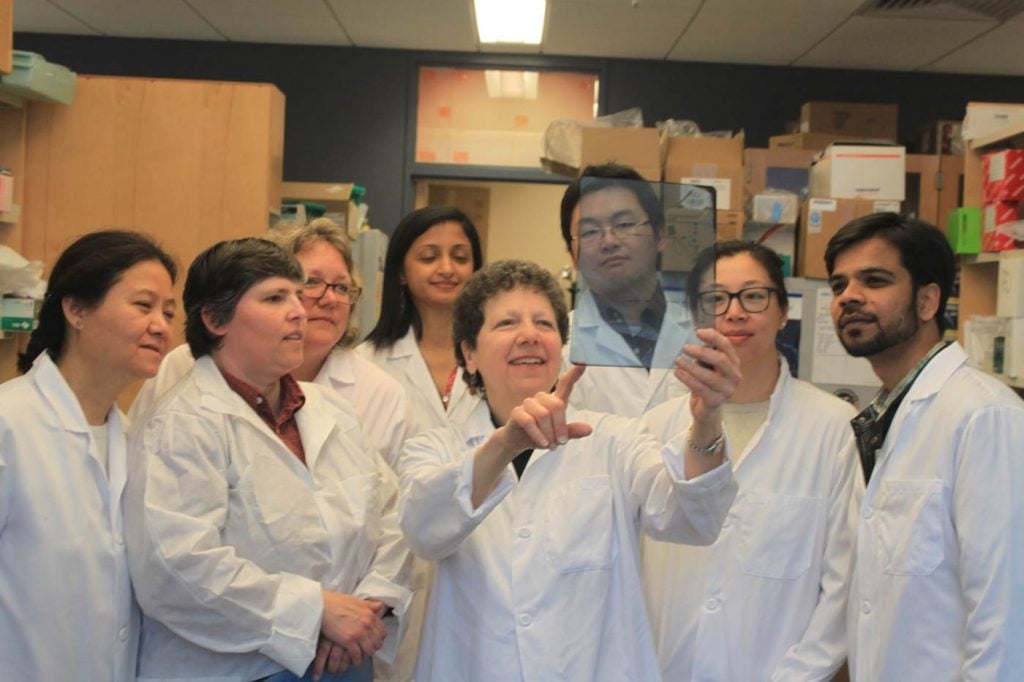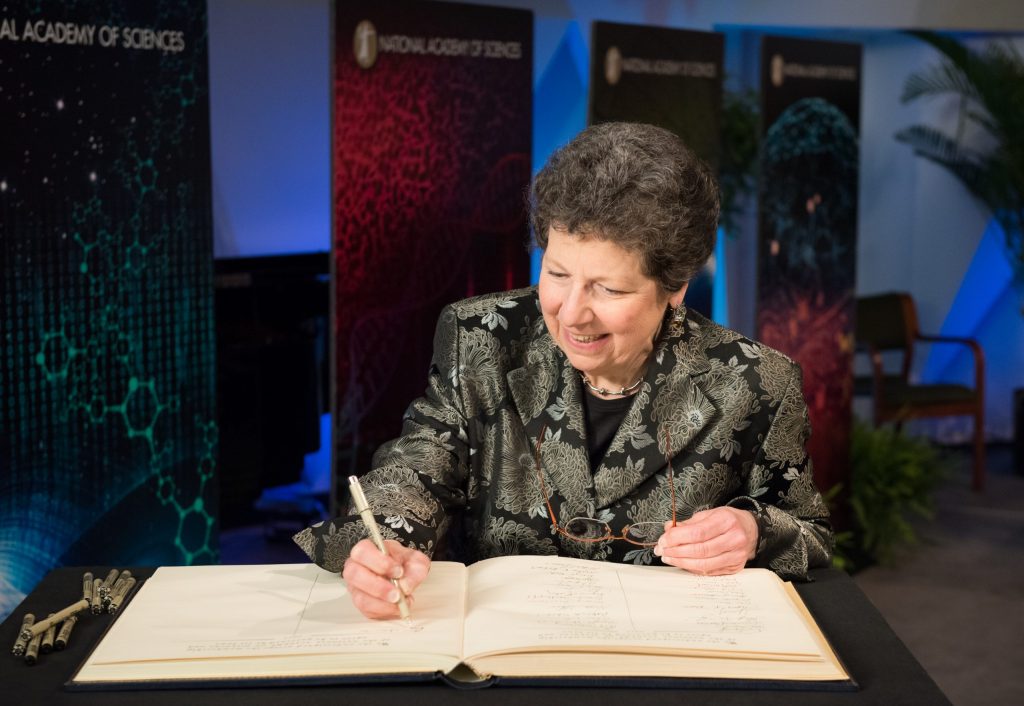
Recipient of the Endocrine Society’s 2025 Roy O. Greep Award for Outstanding Research, Barbara Kahn, MD, discovered very early on that pursuing basic science could be just as rewarding as treating patients with chronic illnesses. She tells Endocrine News about her career journey, why she relishes working with so many enthusiastic junior scientists, and the role the Endocrine Society has played in her career journey.
Barbara Kahn, MD, initially pursued medical school to understand how the human body works and to help patients with chronic illnesses. During her general medicine fellowship, her cross-over study on blood glucose and urine glucose monitoring led to invitations from U.K. researchers to tour their research institutes — a pivotal experience that revealed basic research as an alternate path to her goal of helping people with chronic illnesses live long, gratifying lives.
In January, her continued groundbreaking contributions earned Kahn a place among the Endocrine Society’s 13 distinguished leaders in endocrinology, as a recipient of the prestigious 2025 Laureate Award. She was honored with the Roy O. Greep Award for Outstanding Research, recognizing her exceptional contributions to the field.
Kahn is the George Richards Minot professor of medicine at Harvard Medical School and the vice chair for research strategy in the Department of Medicine at the Beth Israel Deaconess Medical Center. Kahn earned her medical degree at Stanford University Medical School, a master’s in health sciences from University of California, Berkely, and completed her internship and residency in internal medicine at the University of California Davis Medical Center. Her training continued with an endocrine fellowship at the National Institutes of Health. Kahn has received numerous awards and honors including the Banting Medal from the American Diabetes Association and she is an elected member of the National Academy of Sciences, the National Academy of Medicine, and the American Academy of Arts and Sciences.
Kahn’s pioneering research established a critical role for the GLUT4 glucose transporter in adipocytes in regulating systemic insulin sensitivity and type 2 diabetes risk. She performed early investigations of GLUT4 regulation in humans with obesity and diabetes. These, with observations in novel genetic mouse models created in her lab, led to her discovery that GLUT4 down-regulation in adipocytes can cause type 2 diabetes.
Endocrine News caught up with Kahn to learn more about her path to becoming a pioneering researcher and what she enjoys most about training the country’s next generation of endocrinology researchers, as well as her concerns about the diminishing pipeline of physician-scientists.
Endocrine News: What did hearing the news of the recognition for Outstanding Research mean to you?
Kahn: Hearing the news was very exciting and gratifying. This recognition is for all the postdoctoral fellows and students who have worked in my lab over nearly four decades. I am thrilled that their work and ideas are being celebrated in this way.
EN: Your work in helping to shape the fields of diabetes and metabolism is well recognized. How did you find yourself delving into this type of research?
Kahn: I went to medical school to understand how the human body works and to help people with chronic illnesses live long, productive, and gratifying lives. I did not plan to do research. But during residency, I found there were shortcomings in the treatment of many diseases, often because we did not understand the etiology or pathophysiology. When I was a general medicine fellow, I designed and carried out a research project to determine the physiological and psychological effects of home blood glucose monitoring in people with diabetes. This was because urine monitoring which was the standard of care in the early 1980s, was inconvenient and not very accurate. But blood glucose monitoring was not being used at all in the U.S. There were just a few small, uncontrolled studies emerging from the U.K.

My study was a cross-over study of urine glucose monitoring and blood glucose monitoring in patients with type 2 diabetes. Everyone who participated in my study improved their glucose control on both urine and blood glucose monitoring. That reflected the “study effect,” meaning that participating in a clinical study and receiving the attention and input of the medical professionals, can lead to improvement in glucose control. The lack of superiority of blood glucose monitoring in that early study led me to contact investigators in the U.K. who had published the small, uncontrolled studies of glucose monitoring. These investigators invited me to visit their research institutes. As I toured the research laboratories, I realized the great potential of basic science research to make breakthroughs in diabetes treatment. That led me to the National Institutes of Health (NIH) where I sought to learn how to perform basic science research to figure out how insulin really works at the cellular level. I thought that if we really knew how insulin works at a very basic level, we could design better treatments to overcome insulin resistance and prevent or improve treatment for type 2 diabetes.
EN: Your lab website reveals a very diverse team of assistant professors, post-doc fellows, and research assistants. What is the most rewarding part of leading the country’s next generation of endocrinology researchers?
Kahn: It is very exciting to work with young people who have new ideas and approaches. It is rewarding to help trainees find their unique paths to scientific discovery and build their skills and confidence. I encourage trainees to think big and develop rigorous approaches to answer questions that will have a significant impact to advance the field. I am concerned, however, that fewer fellows entering our endocrine fellowship training program are interested in research and that overall, the pipeline of physician-scientists is diminishing. While not nearly as lucrative as clinical practice, biomedical research holds endless opportunities for discoveries that could result in breakthroughs in the diagnosis and/or treatment of endocrine and metabolic diseases.
EN: You and your fellow Laureate winners will be honored at ENDO 2025 taking place in San Francisco in July. How has the Endocrine Society supported your professional career?
Kahn: I have belonged to The Endocrine Society since I was a junior faculty member. It has been a terrific place to network with colleagues who are experts in clinical endocrinology and in basic science research. The respect for, and cultivation of, excellence in both aspects creates a special synergy which I and other colleagues benefit from. I remember lively and very informative debates when I was an associate editor of Endocrine Reviews since the editorial board members wanted the articles to reflect the latest state-of-the-art advances in endocrine research and the implications for clinical care. Also, the Endocrine Society was at the frontier of developing programs to promote successful careers for women and trainees and junior faculty who are underrepresented in medicine. Some of these mentoring programs have been very successful. I feel gratified to be a part of an organization that has been successful in this way.

EN: Lastly, when you are not in the lab, where is your favorite place to fine work-life balance and why?
Kahn: I very much enjoy being in nature, especially hiking. I find various types of exercise to provide a kind of “meditation through movement” that relieves stress and promotes focus and creativity.
Shaw is a freelance writer based in Carmel, Ind. She is a regular contributor to Endocrine News and writes the monthly Laboratory Notes column.

